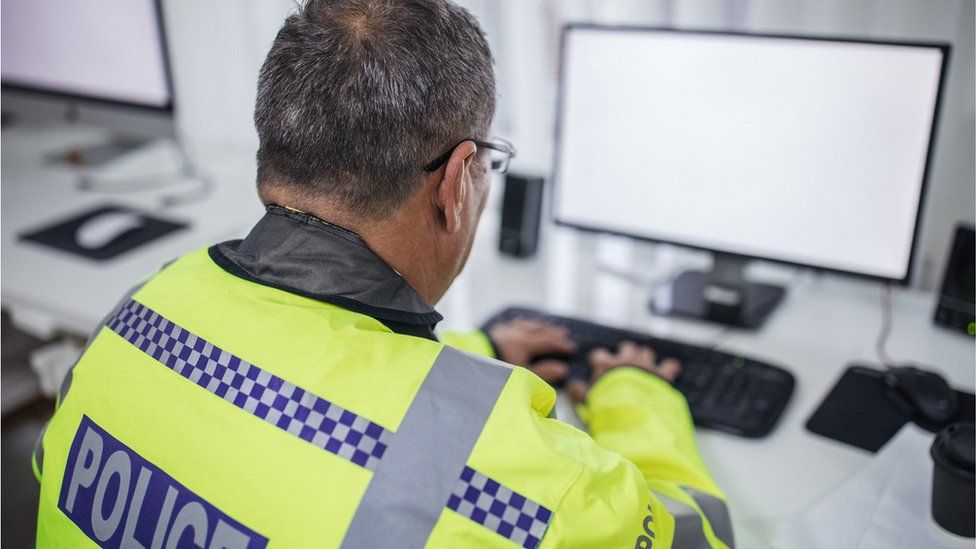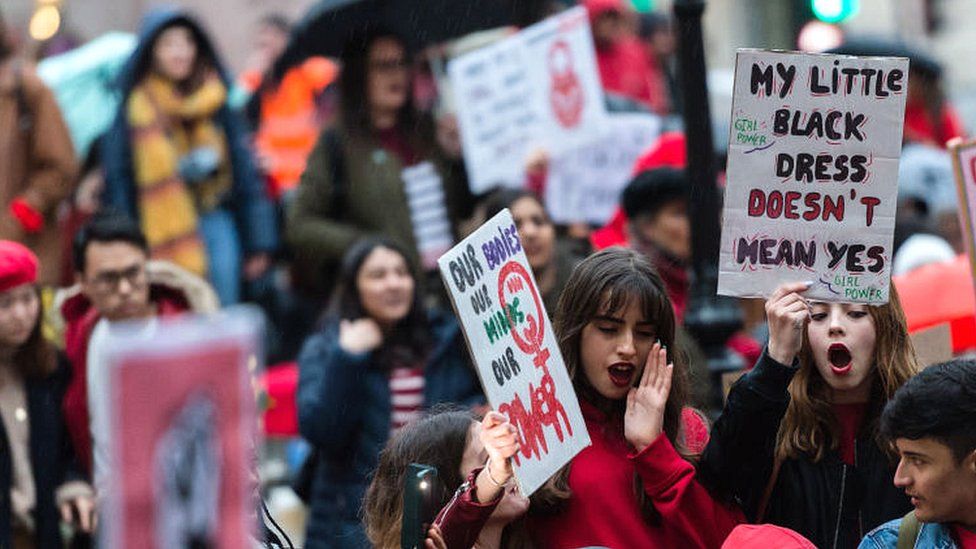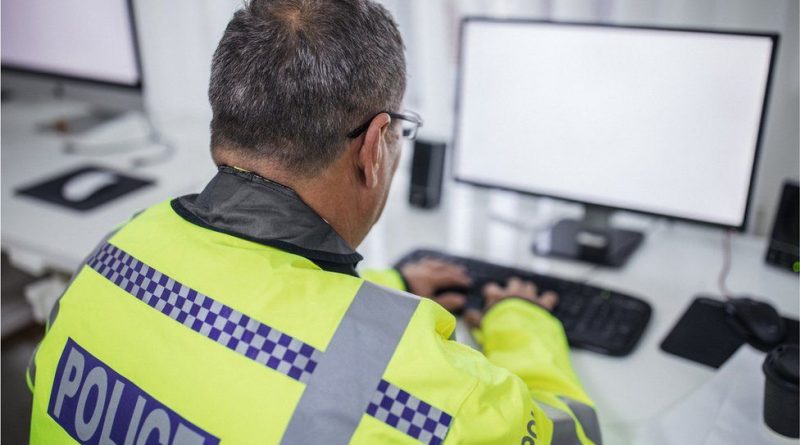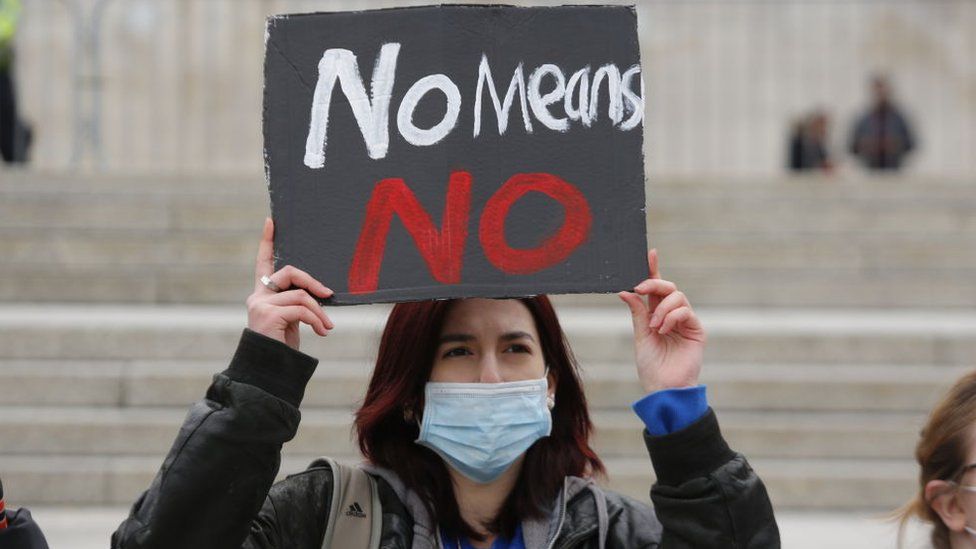Rape victims should not be treated as suspects, says data watchdog

Police and prosecutors should immediately stop collecting large amounts of personal data about rape and sexual assault victims, the UK’s information commissioner says.
In a new report, John Edwards says many victims are treated as “suspects”.
They are asked for an “extraordinary” amount of information, he says – such as medical records and school reports.
The Home Office says it has already strengthened the law on requests for digital information.
Mr Edwards – who leads the Information Commissioner’s Office, the regulator set up to uphold rights and rules over information and data – released his report on Tuesday.
It says victims of rape and sexual assault are being told to consent to hand over “extraordinary” amounts of information about their lives.
“Victims are being treated as suspects,” Mr Edwards says. “And people feel re-victimised by a system they expect to support them. Change is required to rebuild trust that will enable more victims to seek the justice to which they’re entitled.”
As well as being asked to give permission for their mobile phones to be examined – a so-called “digital strip-search” – survivors are also asked for their medical records, social services files and in some cases school reports.
These intrusive practices in the immediate aftermath of a life-changing attack mean it is no surprise that victims withdraw from the legal process, Mr Edwards argues.
That, in turn, is resulting in very low conviction rates for serious sexual offences, he suggests.
Conviction rates for rape are already low – something the UK government has said it was “deeply ashamed” about.
Victims of sexual crimes are often put under pressure by police and prosecutors to hand over their phones because of the possibility they might have sent private messages which undermine their evidence.
This is voluntary, but victims are often told the case will be closed if they do not comply, and some withdraw because they are uncomfortable handing over private data.
Victims’ Commissioner Dame Vera Baird previously said some victims withdraw their complaints after being asked to hand over their phones so that data can be downloaded: “They cannot face the unwarranted and unacceptable intrusion into their privacy.”
Recent legal changes
Last summer, the government announced in its Rape Review that any digital material requested from victims would be strictly limited to what was “necessary and proportionate to allow reasonable lines of inquiry into the alleged offence”.
The Home Office pointed to this law change, and said it has given £5m of funding to 24 police forces for new technology to make sure no adult rape victim is left without a phone for over 24 hours.
“We will also shortly be launching a public consultation on police requests for personal information, such as medical or education records, to understand more about the problems in this area and to test possible solutions.”
It said the recently passed Police, Crime, Sentencing and Courts Act requires authorities to inform the victim in writing about why their information is sought and how it will be handled.
The Crown Prosecution Service says prosecutors and investigators are asked to “carefully consider” when to seek a victim’s data.
“Both the law and our guidelines set out clear parameters police and prosecutors must follow when making requests – they must be specific and only sought when necessary,” it said. “Defence should be passed this information only to comply with our legal obligations where information is capable of undermining the prosecution case or assisting the suspect.”
The commissioner’s report asks the National Police Chiefs’ Council to mandate all police forces to stop using forms which indicate broad, general consent to obtain victims’ data.
It says the NPCC should produce new, clearer forms for police to use when requesting personal information.
The NPCC says it accepts the commissioner’s recommendations and that it has already started working on improving forces’ response to rape victims, including the use of “digital processing notices” which clarify how data is used.
But one charity said neither the commissioner nor CPS have gone far enough.
While welcoming the information watchdog for recognising the scale of the problem, the Centre for Women’s Justice says its recommendations are not sufficiently clear.
“What is needed is clear unequivocal guidance that police and prosecutors should not be seeking to trawl rape survivors’ personal data looking for anything that may undermine their credibility,” said Harriet Wistrich, director of the CWJ.
“The new guidance will not achieve the protections that rape survivors need, or restore their faith in the system,” she said.

- FROM MUSICIAN TO RESTAURANTEUR: How to turn your passion for food into a business
- ‘IT’S NOT A FLAW, IT’S A GIFT’: The quiet power of introverts

-
- 3 days ago

-
- 6 July 2021

-
- 1 day ago





